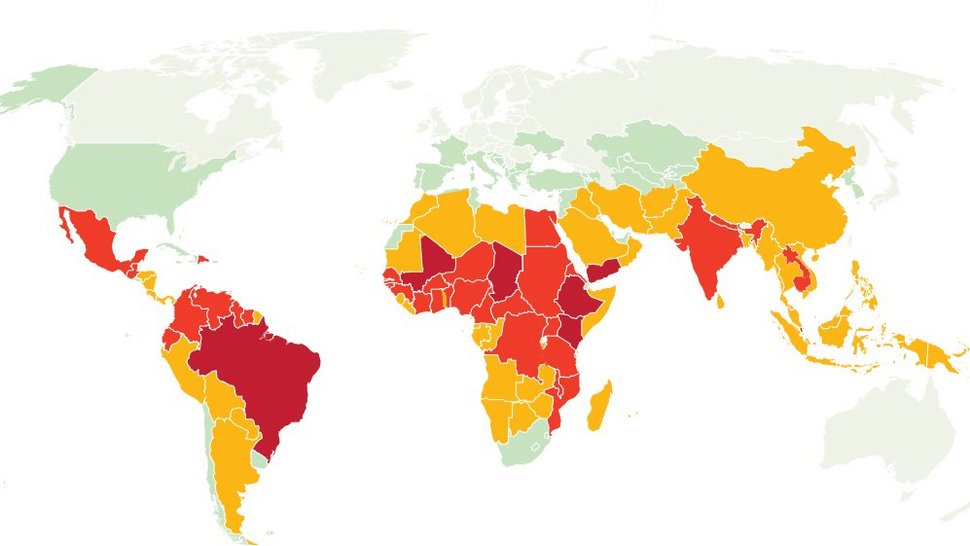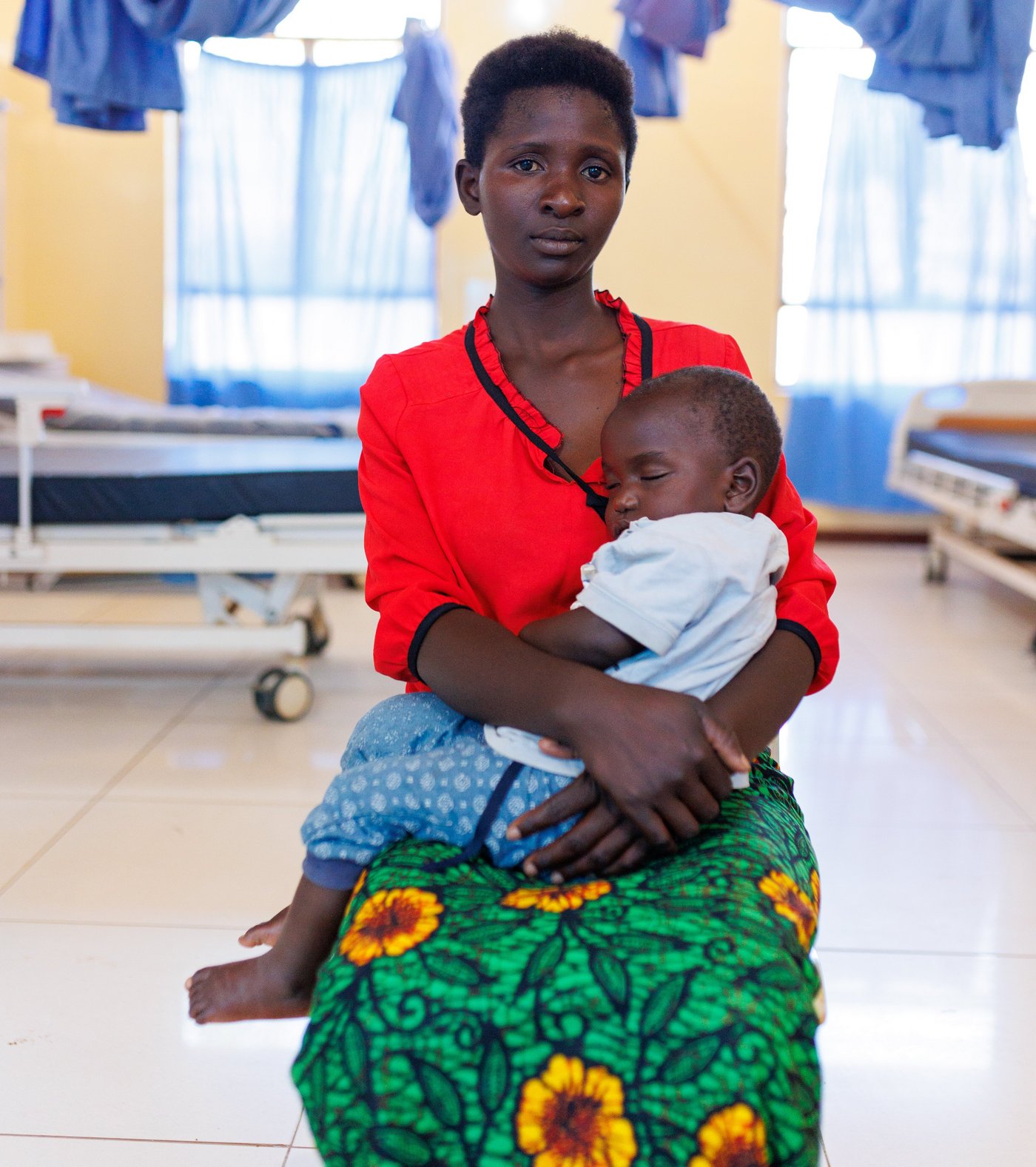German research contribution to neglected tropical diseases (NTDs) is not increasing enough
More long-term German investment needed in research centres in endemic countries
Although Germany is increasing its research into neglected tropical diseases (NTDs), this increase puts it below the average of the ten most productive countries in the world. In addition, research funding in this area has declined since 2018. These are the findings of a study commissioned by the Federal Ministry of Education and Research (BMBF) under the leadership of the Bernhard Nocht Institute for Tropical Medicine (BNITM). The survey "An assessment of the contribution of German institutions to research on neglected tropical diseases" was presented in Berlin this evening.

According to estimates by the World Health Organization (WHO), more than one billion people suffer from so-called Neglected Tropical Diseases, NTDs. These mostly affect population groups that live in extreme poverty and have no access to adequate healthcare, education, water, hygiene and sanitation. The WHO currently lists 21 neglected tropical diseases, including snakebite poisoning and diseases caused by worms, protozoa, bacteria or viruses. Although there are treatment options or vaccinations for some of these diseases, they are difficult to obtain or unaffordable in most of the countries affected.

Back in 2018, NTD experts were commissioned by the Federal Ministry of Education and Research (BMBF) to analyse the contribution of German institutions to research and development on neglected tropical diseases for the first time. The analysis was carried out in close cooperation with the Bernhard Nocht Institute for Tropical Medicine (BNITM), the German Network against Neglected Tropical Diseases (DNTDs), the German Society for Tropical Medicine, Travel Medicine and Global Health (DTG) and the German Society for Parasitology (DGP). This second survey is the first following the signing of the Kigali Declaration by the German government in 2022, in which Germany commits to the goal of contributing to the global fight against NTDs in the area of research and development.
In descending order, the most funding was provided for research into lymphatic filariasis, schistosomiasis, onchocerciasis and sleeping sickness. Most publications with German participation appeared on leishmaniasis, followed by dengue fever and schistosomiasis.
Prof. Dr Jürgen May, Chairman of the BNITM: "The next step should be to strengthen research capacities in countries with neglected tropical diseases. The international community needs to involve country-specific approaches and local actors much more than it has done so far. German funding institutions can contribute to this, especially as there are already a large number of long-term and stable collaborations, especially with institutions in Africa." Other European countries are already practising this.

This survey "An assessment of the contribution of German institutions to research on neglected tropical diseases" was conducted by 31 NTD experts from 16 German research institutions and organisations. As far as possible, each expert tandem worked on a specific neglected tropical disease. They collated evidence-based information, data and assessments from various sources. This included a systematic literature search for articles with at least one co-author from a German institution and a systematic search for publication metrics, patents and clinical trials. Determining the exact funding channels and amounts of German research proved to be difficult: the results are based on trackers in voluntary databases and on information from German research organisations and institutions as well as two federal ministries. A further recommendation of the authors is therefore to set up a structured database for German NTD funding in Germany.
About the institutions involved
The Bernhard Nocht Institute for Tropical Medicine (BNITM) is Germany's largest institution for research, care and teaching in the field of tropical and emerging infectious diseases. Current thematic focuses are malaria, haemorrhagic fever viruses, neglected tropical diseases (NTDs), immunology, epidemiology and the clinic of tropical infections as well as the mechanisms of virus transmission by mosquitoes. For the handling of highly pathogenic viruses and infected insects, the institute has laboratories of the highest biological safety level (BSL4) and a safety insectarium (BSL3). The BNITM's mobile laboratories are available for worldwide outbreak control of highly pathogenic or highly infectious viruses. The institute maintains numerous co-operations with research institutions in the Global South.
The German Network against Neglected Tropical Diseases e.V. (DNTDs) forms a national platform in Germany from which, together with international partners, attention in Germany for this group of diseases is to be raised and German commitment to combating them increased. The German network aims to support the World Health Organisation (WHO) in eradicating or eliminating many of the neglected tropical diseases in the foreseeable future.
The German Society for Parasitology e.V. (DGP) sees itself as an association of all persons with a scientific interest in parasitology who are active in the fields of zoology and botany, medicine, in particular tropical medicine, microbiology and hygiene, veterinary medicine, plant protection and pest control.versteht sich als Zusammenschluss aller wissenschaftlich an der Parasitologie interessierten Personen, die auf den Gebieten der Zoologie und Botanik, der Medizin, insbesondere Tropenmedizin, Mikrobiologie und Hygiene, der Veterinärmedizin, des Pflanzenschutzes und der Schädlingsbekämpfung tätig sind.
The German Society for Tropical Medicine, Travel Medicine and International Health e.V. (DTG) was founded in 1907 and currently has almost 1.500 members. As a specialised scientific society, its aim is to bring together medical practitioners, veterinarians, natural and social scientists who practise, research, advise or are particularly interested in the fields of tropical medicine and international health. The DTG is a member of the Association of Scientific Medical Societies (AWMF).
Downloads
Contact person
Prof. Dr Jürgen May
Head of Dpt. Infectious Diseases Epidemiology
Phone : +49 40 285380-402
Email : may@bnitm.de
Julia Rauner
Public Relations
Phone : +49 40 285380-264
Email : presse@bnitm.de
Further information







